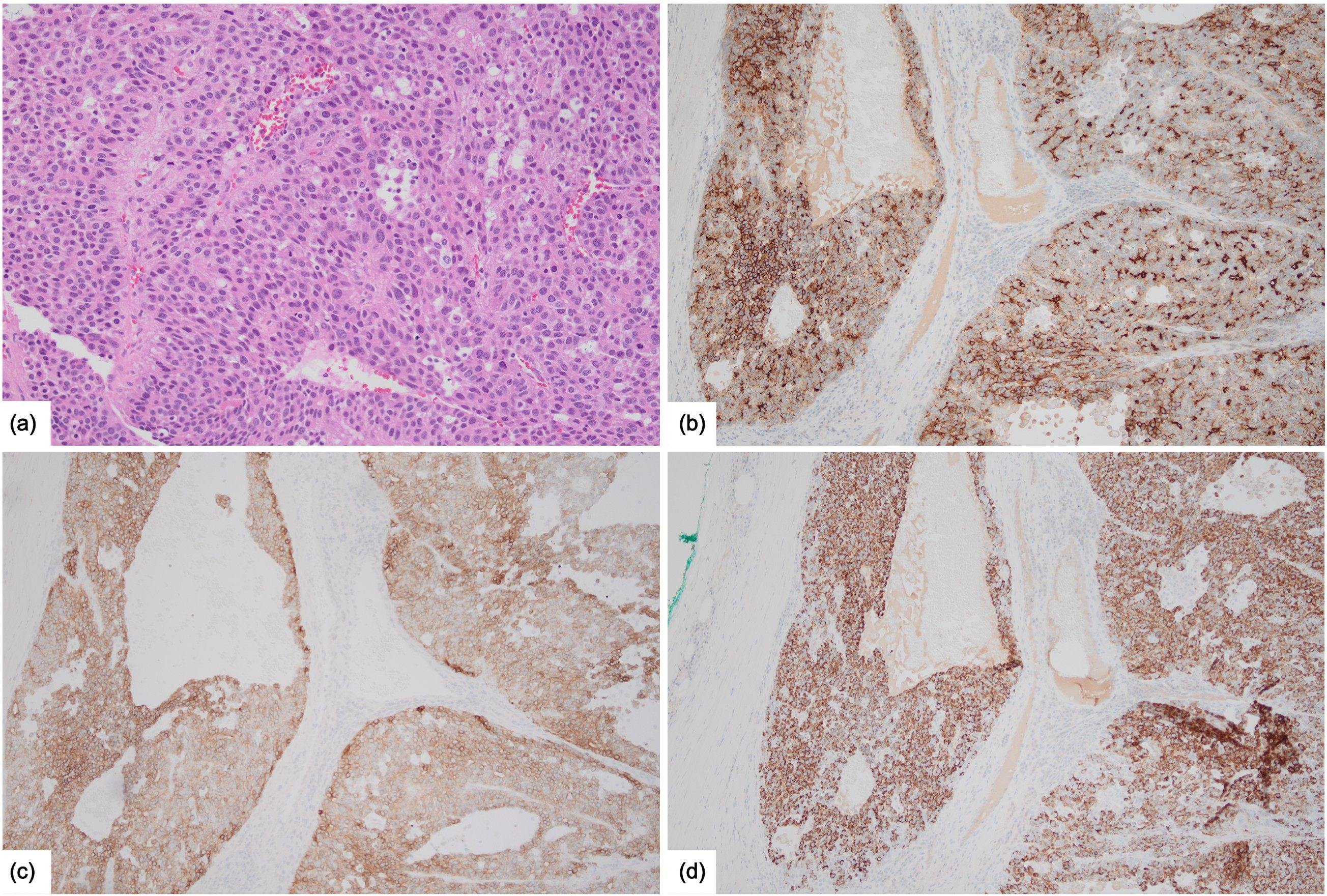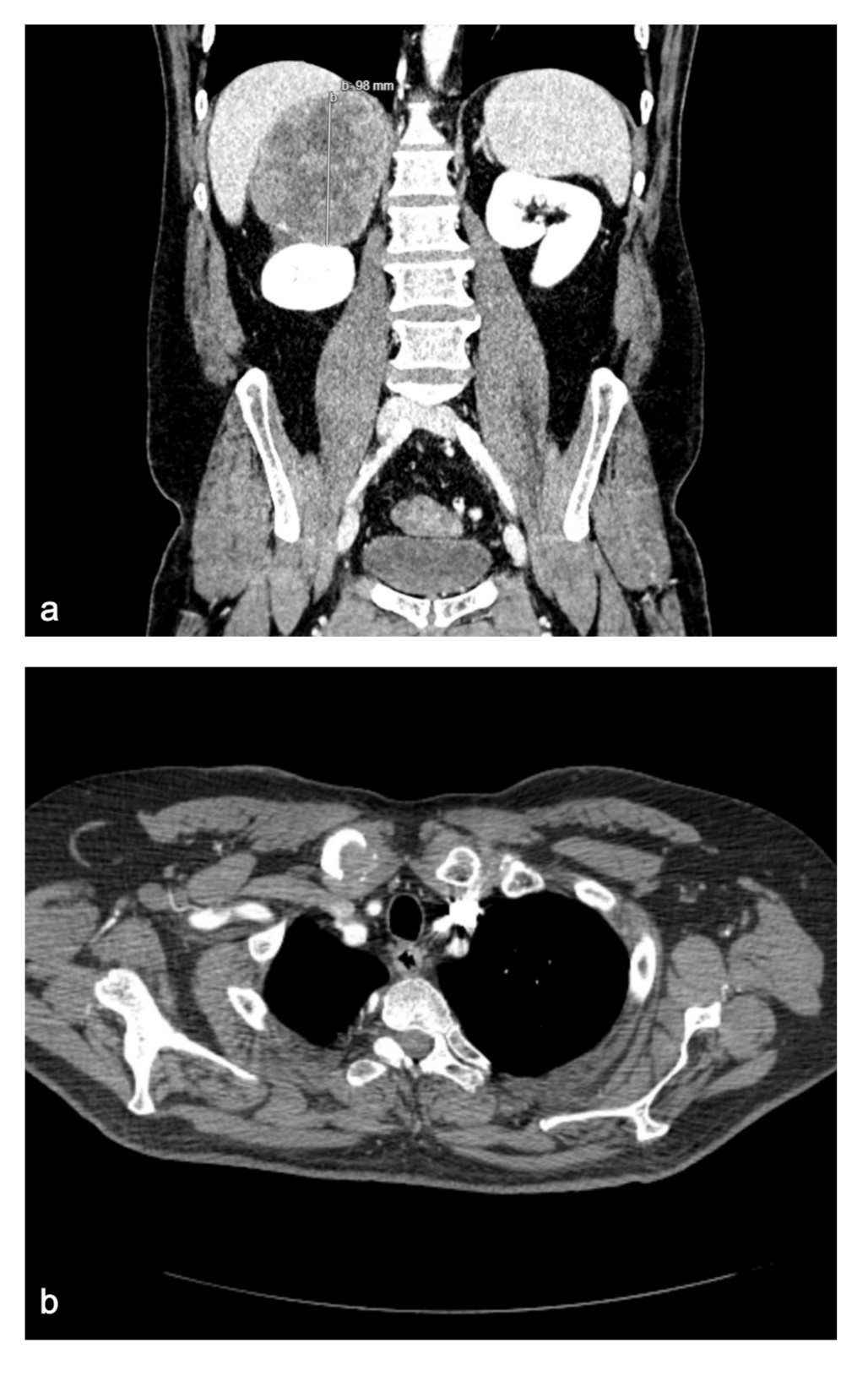Sunday Poster Session
Category: Liver
P1779 - Metastatic Hepatocellular Carcinoma Without a Detectable Primary: A Case of Adrenal Involvement in the Absence of Liver Lesions
Sunday, October 26, 2025
3:30 PM - 7:00 PM PDT
Location: Exhibit Hall

Rohit Goyal, MD
Louisiana State University
Shreveport, LA
Presenting Author(s)
Rohit Goyal, MD1, Aditya Vyas, MD2, Anaiya Singh, MD3, Karan Sachdeva, MD4, Shruti Jain, MBBS3, Yousif Barzani, MD3, Xin Gu, MD3, Mariana Usatii, MDCM3, Michelle Neice, MD3, Sudha Pandit, MD1
1Louisiana State University, Shreveport, LA; 2LSUHS, Shreveport, LA; 3Louisiana State University Health, Shreveport, LA; 4LSU Health, Shreveport, LA
Introduction: Hepatocellular carcinoma (HCC) is the most common primary liver tumor with a high mortality rate, especially when associated with extrahepatic metastasis. Metastatic disease is typically associated with an advanced primary lesion. Adrenal glands are a common site for metastasis, with one study reporting around 8.8% of all metastatic diseases (1). While most cases occur concurrently with intrahepatic lesions, we present a case of HCC metastatic to the adrenal gland, with no primary lesion in the liver.
Case Description/
Methods: A 61-year-old male with a history of hypertension, daily alcohol use, and smoking was diagnosed with portal vein thrombosis, cirrhosis, and Hepatitis C during evaluation for abdominal pain and fever one year ago. He established care with the Gastroenterology clinic for his cirrhosis, and initial HCC screening revealed an elevated AFP level (96 ng/mL), but CT imaging did not show hepatic lesions. Instead, a 6.8 x 8.8 cm right adrenal mass was identified (Figure 1a). The patient was seen by Surgical Oncology for evaluation of his adrenal mass. He was asymptomatic at the time, except for fatigue, and denied any abdominal pain, weight changes, tachycardia, palpitations, and headaches. The mass was resected, and histopathology revealed metastatic carcinoma. Immunohistochemical staining was positive for Hep-Par1, Glypican-3, and AE1/AE3, indicating hepatocellular origin (Figure 2). Repeat imaging, including preoperative CT and postoperative MRI, did not show any liver lesions (LI-RADS 2). Further staging identified a lytic lesion in the right proximal clavicle (Figure 1b), and fine-needle aspiration confirmed metastatic HCC. The patient was referred to Oncology and is currently undergoing systemic therapy with Durvalumab.
Discussion: We report a case of metastatic HCC to the adrenal gland without a detectable primary liver lesion. While mostly associated with an occult primary liver tumor, multiple imaging studies done in our patient showed no focal lesions in the liver, indicating other explanations. Intraadrenal hepatic heterotopia, the presence of a tissue type in a non-physiological site, is one of the possible explanations, with postulations that it may have an increased neoplastic potential due to compromised vascular supply or biliary drainage (2,3). Irrespective of the etiology, our case report emphasizes the risk of developing HCC in patients with cirrhosis and highlights the importance of screening in these patients.

Figure: Figure 1: Images from the CT scans showing the adrenal mass (a) and lytic lesion in the right proximal clavicle (b).

Figure: Figure 2: Histopathological findings of the adrenalectomy specimen, (a) H&E staining (20x magnification) and (b) ICH staining for GLYPICAN3, (c) ICH staining for GLYPICAN3, (d) ICH staining for AE1-AE3, all indicating hepatocellular origin.
Disclosures:
Rohit Goyal indicated no relevant financial relationships.
Aditya Vyas indicated no relevant financial relationships.
Anaiya Singh indicated no relevant financial relationships.
Karan Sachdeva indicated no relevant financial relationships.
Shruti Jain indicated no relevant financial relationships.
Yousif Barzani indicated no relevant financial relationships.
Xin Gu indicated no relevant financial relationships.
Mariana Usatii indicated no relevant financial relationships.
Michelle Neice indicated no relevant financial relationships.
Sudha Pandit: Medtronic – Product feedback.
Rohit Goyal, MD1, Aditya Vyas, MD2, Anaiya Singh, MD3, Karan Sachdeva, MD4, Shruti Jain, MBBS3, Yousif Barzani, MD3, Xin Gu, MD3, Mariana Usatii, MDCM3, Michelle Neice, MD3, Sudha Pandit, MD1. P1779 - Metastatic Hepatocellular Carcinoma Without a Detectable Primary: A Case of Adrenal Involvement in the Absence of Liver Lesions, ACG 2025 Annual Scientific Meeting Abstracts. Phoenix, AZ: American College of Gastroenterology.
1Louisiana State University, Shreveport, LA; 2LSUHS, Shreveport, LA; 3Louisiana State University Health, Shreveport, LA; 4LSU Health, Shreveport, LA
Introduction: Hepatocellular carcinoma (HCC) is the most common primary liver tumor with a high mortality rate, especially when associated with extrahepatic metastasis. Metastatic disease is typically associated with an advanced primary lesion. Adrenal glands are a common site for metastasis, with one study reporting around 8.8% of all metastatic diseases (1). While most cases occur concurrently with intrahepatic lesions, we present a case of HCC metastatic to the adrenal gland, with no primary lesion in the liver.
Case Description/
Methods: A 61-year-old male with a history of hypertension, daily alcohol use, and smoking was diagnosed with portal vein thrombosis, cirrhosis, and Hepatitis C during evaluation for abdominal pain and fever one year ago. He established care with the Gastroenterology clinic for his cirrhosis, and initial HCC screening revealed an elevated AFP level (96 ng/mL), but CT imaging did not show hepatic lesions. Instead, a 6.8 x 8.8 cm right adrenal mass was identified (Figure 1a). The patient was seen by Surgical Oncology for evaluation of his adrenal mass. He was asymptomatic at the time, except for fatigue, and denied any abdominal pain, weight changes, tachycardia, palpitations, and headaches. The mass was resected, and histopathology revealed metastatic carcinoma. Immunohistochemical staining was positive for Hep-Par1, Glypican-3, and AE1/AE3, indicating hepatocellular origin (Figure 2). Repeat imaging, including preoperative CT and postoperative MRI, did not show any liver lesions (LI-RADS 2). Further staging identified a lytic lesion in the right proximal clavicle (Figure 1b), and fine-needle aspiration confirmed metastatic HCC. The patient was referred to Oncology and is currently undergoing systemic therapy with Durvalumab.
Discussion: We report a case of metastatic HCC to the adrenal gland without a detectable primary liver lesion. While mostly associated with an occult primary liver tumor, multiple imaging studies done in our patient showed no focal lesions in the liver, indicating other explanations. Intraadrenal hepatic heterotopia, the presence of a tissue type in a non-physiological site, is one of the possible explanations, with postulations that it may have an increased neoplastic potential due to compromised vascular supply or biliary drainage (2,3). Irrespective of the etiology, our case report emphasizes the risk of developing HCC in patients with cirrhosis and highlights the importance of screening in these patients.

Figure: Figure 1: Images from the CT scans showing the adrenal mass (a) and lytic lesion in the right proximal clavicle (b).

Figure: Figure 2: Histopathological findings of the adrenalectomy specimen, (a) H&E staining (20x magnification) and (b) ICH staining for GLYPICAN3, (c) ICH staining for GLYPICAN3, (d) ICH staining for AE1-AE3, all indicating hepatocellular origin.
Disclosures:
Rohit Goyal indicated no relevant financial relationships.
Aditya Vyas indicated no relevant financial relationships.
Anaiya Singh indicated no relevant financial relationships.
Karan Sachdeva indicated no relevant financial relationships.
Shruti Jain indicated no relevant financial relationships.
Yousif Barzani indicated no relevant financial relationships.
Xin Gu indicated no relevant financial relationships.
Mariana Usatii indicated no relevant financial relationships.
Michelle Neice indicated no relevant financial relationships.
Sudha Pandit: Medtronic – Product feedback.
Rohit Goyal, MD1, Aditya Vyas, MD2, Anaiya Singh, MD3, Karan Sachdeva, MD4, Shruti Jain, MBBS3, Yousif Barzani, MD3, Xin Gu, MD3, Mariana Usatii, MDCM3, Michelle Neice, MD3, Sudha Pandit, MD1. P1779 - Metastatic Hepatocellular Carcinoma Without a Detectable Primary: A Case of Adrenal Involvement in the Absence of Liver Lesions, ACG 2025 Annual Scientific Meeting Abstracts. Phoenix, AZ: American College of Gastroenterology.
